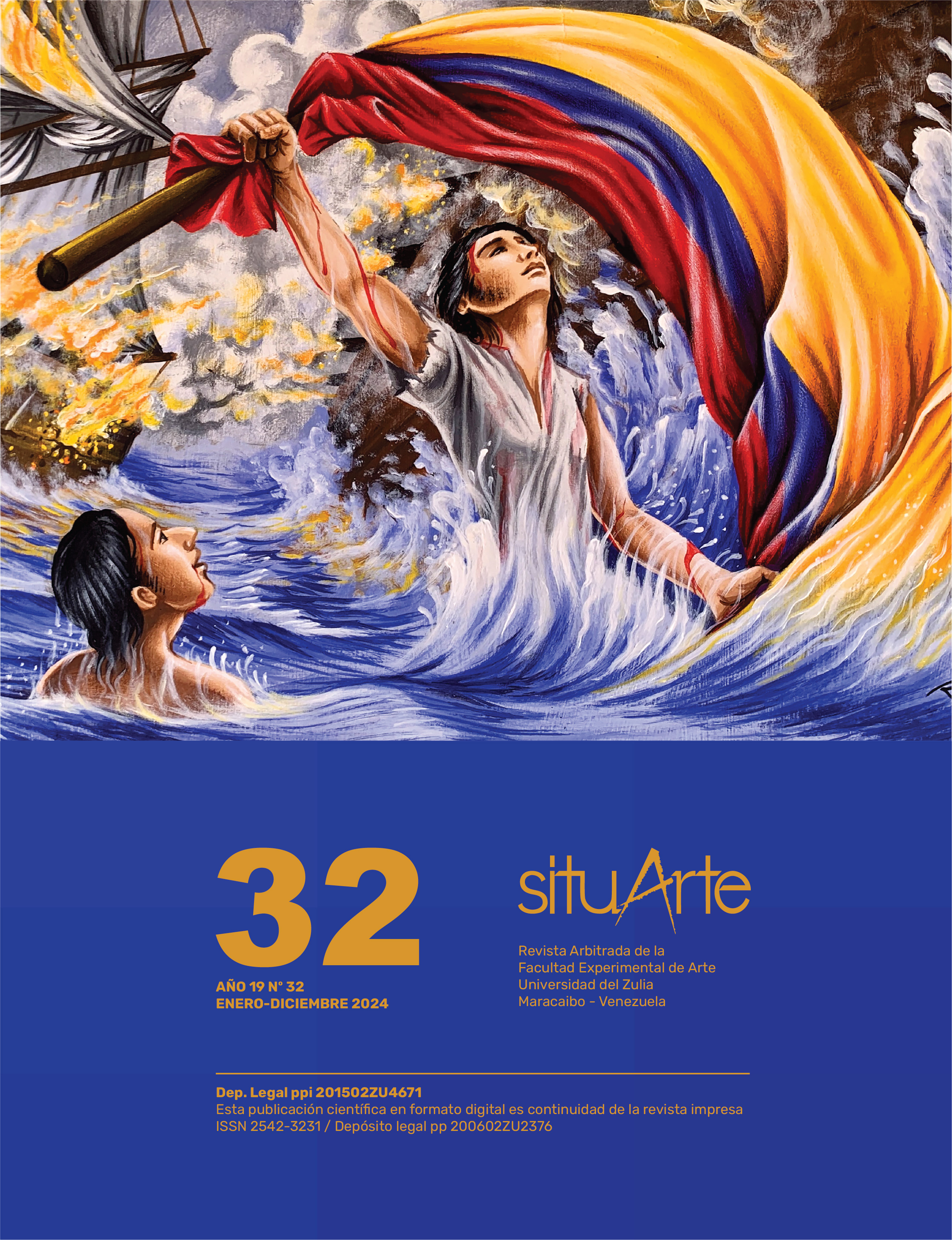Maracaibo doesn't exist: Zulia cinema versus the forces of post-colonialism
Maracaibo doesn't exist: Zulia cinema versus the forces of post-colonialism
Abstract
The spread of capitalism facilitated the creation of large empires based mainly on eco-nomics. Films were part of this endeavor. Some National Cinemas were built on the need to create a distinct body of work that stands up against more dominant cinemas. Even within countries this has been the case. When the films of a region openly defies the in-fluence of another, some questions arise. Is possible to define a cinema within a National Cinema? What is a
National Cinema when a nation is spread across countries’ frontiers? Can we talk about a National or a Regional Cinema when talking about a group of films that have been deeply mirroring the films of other nations/regions? We will explore these questions using a historical-narrative approach analyzing the films La Otra Muerte, Al Otro Lado del Mar, and Ramón No Sabe Volar, made in the Zulia region in northwest Venezuela.
Downloads
References
Anderson, Benedict (1983). Imagined Communities: Reflections on the Origin and Spread of Nationalism. London: Verso.
Arreaza, Emperatriz (2005). Prólogo de: La zulianidad en el cine regional, por Labarca, Catalina y Aminor Méndez. 5-9. Caracas: Centro Nacional Autónomo de Cinematografía.
Aumont, Jacques; Michele, Marie (1988). L’Analyse des films/Analysis of Film. Nathan.
Ball, Ricardo (Director) (1977). La otra muerte. Maracaibo: La Universidad del Zulia.
Bravo, Luis (2006). El señor de los tristes y otros ensayos. Caracas: Monte Ávila Editores Latinoamérica.
Bordwell, David; Thompson, Kristin (1994). Film History: An Introduction. New York: McGraw-Hill, Inc.
Cadenas, Alexis (Director) (2013). Ramón no sabe volar. Maracaibo: Asociación Civil El Chivo.
Corrigan, Timothy; Mazaj, Meta y White, Patricia (2010). Critical Visions in Film Theory. Bedford/St. Martin’s.
Crofts, Stephen (1993). “Reconceptualizing National Cinema/s.” En Critical Visions in Film Theory, editado por Corrigan, Timothy; Mazaj, Meta y White, Patricia, 939-958. Bedford/St. Martín 's.
Kinder, Marsha (1993). Blood Cinema: The Reconstruction of National Identity in Spain. Berkeley y Los Ángeles: University of California Press.
Kwon, Miwon (1997). “One Place after Another: Notes on Site Specificity.” Octubre 85-110. Boston: Prensa del MIT.
Labarca, Catalina y Méndez, Aminor (2005). La zulianidad en el cine regional. Caracas: Centro Nacional Autónomo de Cinematografía.
Lumière, Louis (Director) (1895). La Sortie de l'Usine Lumière à Lyon. Lyon: Lumière.
Lumière, Louis (Director) (1896). L'Arrivée d'un Train en Gare de la Ciotat. Lyon: Lumière.
Ortega, Patricia (Directora) (2006). Al otro lado del mar. La Habana: EICTV.
Trujillo Durán, Manuel (Director) (1897). Celebre especialista sacando muelas en El gran hotel Europa. Maracaibo: Trujillo Durán.
Trujillo Durán, Manuel (Director) (1897). Muchachas bañándose en la laguna de Maracaibo. Maracaibo: Trujillo Durán.













